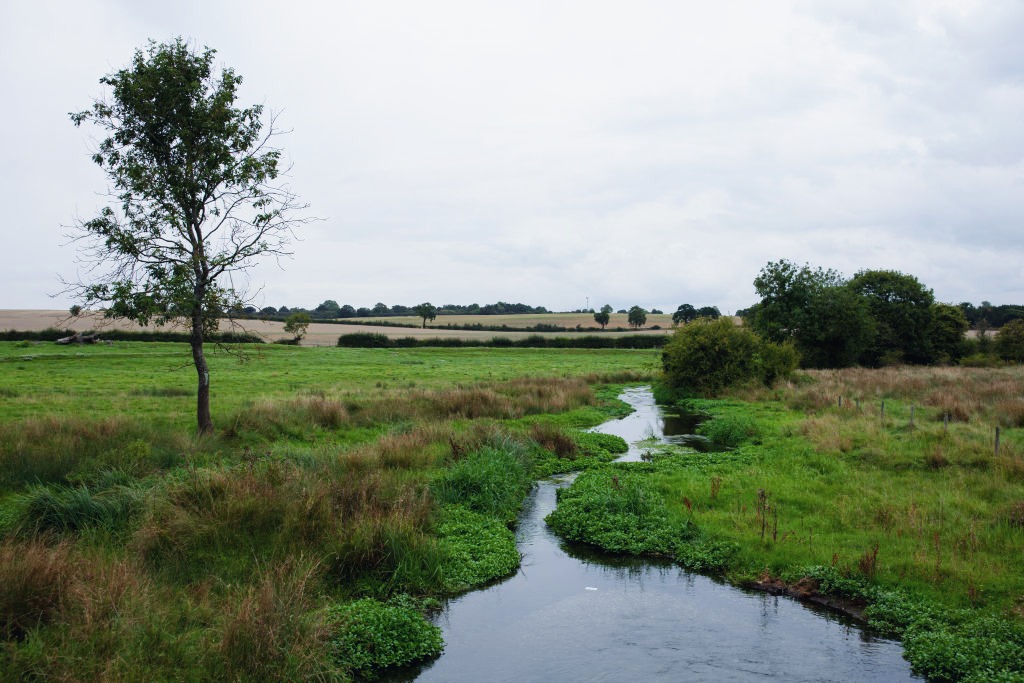I’m an environmentalist and I say ‘build, build, build’!
Let’s build gigawatts galore of Great British renewable energy and clean up our emissions. Let’s put a Bazal-jet booster behind sewerage infrastructure and clean up the filth in our rivers. When we build homes, let’s get with the times and invest in green infrastructure, our natural defences against flood, fire and crop failure. Even better, why not let beavers build some of it for us?
Like the majority of the UK’s nature charities, I totally reject the Chancellor’s caricature of nature-lovers as stubborn ‘blockers’ in her confected conflict between nature and development.
In her speech today, Rachel Reeves once again scapegoated bats for delays in development. The Prime Minister and Chancellor have repeated this exhausted refrain enough times over the last few weeks to make ‘chiroptera’ an early contender for OED word of the year. But can No. 10 and No. 11 really believe what they are saying?
The tragedy, of course, is that a growth at any cost philosophy is self-defeating
Protected sites and species rules do require developers to avoid and minimise harm and, where damage happens, to compensate for a development’s impacts on nature. Yet few developments are stopped by environmental rules. Most developers can navigate existing rules with confidence. Constrained supply chains, impoverished local authorities, project mismanagement, (sometimes deliberately) sluggish housing build-out rates, and lack of strategic direction all weigh much more heavily on development rates.
But that’s not to say the planning system shouldn’t change.
At the moment, especially where local authorities don’t have an up-to-date development plan, each planning decision is made in isolation. Decisions on permitting and consents – like whether to allow yet another massive chicken shed to pollute the River Wye – are taken entirely separately. We have no strategic plan for the way we make best use of our little island, and that leads to poor choices. There’s a Land Use Framework coming soon that promises to fix that issue and it really can help if it embeds the UK’s goal of protecting 30 per cent of the land for nature by 2030, alongside securing a sustainable food supply and providing homes.
We should give more certainty to major infrastructure developers. The system has slowed down since it was introduced in 2007 and much of that is down to out of date ‘National Policy Statements’, which set out the country’s requirements for things such as power generation, gas infrastructure and oil pipelines. One change which would add certainty, speed and environmental integrity would be to add a clear climate and nature test to the National Policy Statements (a pre-election promise that seems to have vanished). It should clarify that projects should only go ahead if they are compatible with net zero and halting wildlife decline. (While they are at it, the government should draft a National Policy Statement for critical natural infrastructure.)
There are even ways to help developers meet their legal responsibilities for nature in simpler ways which also improve the environment. Some environmental rules require developers to compensate for harming nature. The government is proposing a Nature Restoration Fund for developers to pay into, so they do not have to go out and buy enhancements themselves. Many environmentalists are rightly suspicious of this approach because it requires the UK’s most important nature laws to be amended, but it really could work.
By contrast, deregulation would unleash an unsustainable free-for-all that could be awful for wildlife, self-defeating for the economy and joy-killing for communities. The Chancellor has levelled her criticism at bats, but in doing so she’s aiming her fire at the rules that protect rare chalk streams, harvest mice, water voles, temperate rainforests and wildflower meadows – the rare and wonderful wildlife that make our country special. She’s pointing her 12 bore at the parks and green places that bring communities to life.
The tragedy, of course, is that a growth at any cost philosophy is self-defeating. It’s self-defeating economically because any respectable economist these days will tell you that all prosperity and resilience rely on nature. I think it will be self-defeating politically too. For the first time in a long time, there’s a chance to make nature-positive planning reforms, but picking a needless fight with the big green giants and the grassroots campaigners could alienate a massive demographic.
So my message for the Chancellor today? We are ready to back planning reform that supports nature recovery and infrastructure, but that can only happen if that government takes the environment seriously and stops demonising nature protection.
Please build bridges between environmental protection and planning reform, don’t tear them down.







Comments